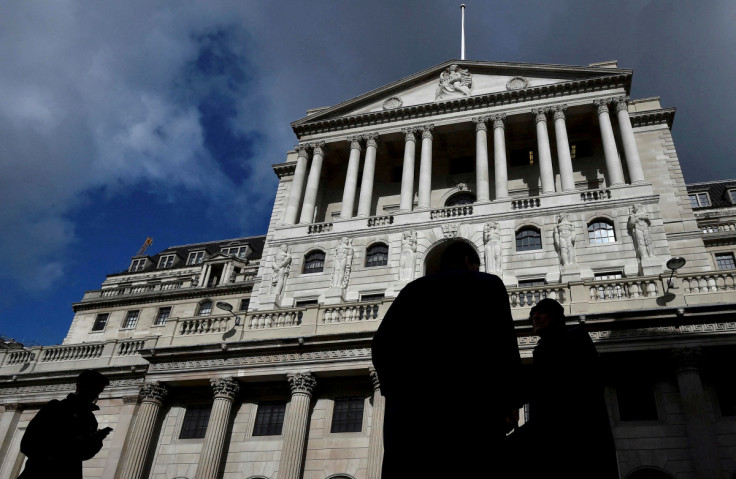The Bank of England is likely to deliver a “significant policy response” to finance minister Kwasi Kwarteng’s huge tax cuts but wants to wait until its next scheduled meeting in November before making its move, BoE Chief Economist Huw Pill said on Tuesday.
Kwarteng, following up on new Prime Minister Liz Truss’s promise to sweep aside economic “orthodoxy”, sent the pound tumbling and British government bond yields soaring when he announced sweeping tax cuts to kick-start the economy on Friday.
“I do want to flag clearly at this point that in my view the combination of fiscal announcements that we’ve seen will act as a stimulus,” Pill told the Barclays-CEPR International Monetary Policy Forum in London.
“It is hard not to draw the conclusion that this will require a significant monetary policy response,” he said, adding that financial market upheaval would have a big impact on the economy and would be factored into the BoE’s next forecasts.
Some investors and economists have said the British central bank should hold an emergency meeting now and deliver a big interest rate hike to prop up the value of the pound and limit further inflation pressure.
Pill acknowledged that the Nov. 3 date of the BoE’s next scheduled policy announcement seemed a long way away, but said it was better for central banks to take a “more considered approach, a lower-frequency approach”.
In the meantime the BoE would rely on communicating its intentions, an approach that would require respect for the central bank’s independence from the government, he said.
Separately on Tuesday, Kwarteng told bankers, insurers and asset managers he was “confident” that his economic strategy would work, and he stressed the need for close cooperation with the BoE.
On Monday, Governor Andrew Bailey said the BoE “will not hesitate” to raise interest rates if needed but added that the Monetary Policy Committee would make a full assessment of the situation at its November meeting.
‘CHALLENGING’ MARKET
The pound was higher against the dollar on Tuesday, a day after hitting a record low.
British government bonds, which suffered their biggest sell-off in decades on Friday and Monday, recouped some of their losses early on Tuesday but lost ground again following Pill’s remarks.
Thirty-year gilt yields rose close to 5%, their highest level since 2002, up more than 45 basis points on the day, while yields on 20-year gilts were up more than 36 basis points.
Pill said the market was “challenging” but suggested the BoE was not prepared to halt its plan to sell government bonds from the huge stockpile of debt which it acquired as part of its stimulus efforts since the global financial crisis.
“I appreciate the current market environment is challenging for many people. But it also is something that I think – as long as it’s just an orderly repricing reflecting fundamentals – that is an environment in which I think QT can and should continue.”
The BoE has previously said it would set a “high bar” for any changes to its quantitative tightening schedule for selling down its bond portfolio.








